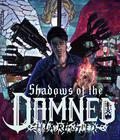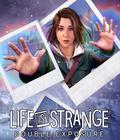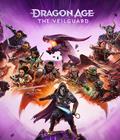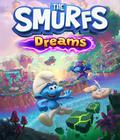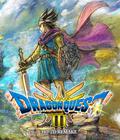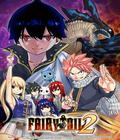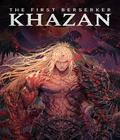Red Steel 2 returns with an artistic style and flair created just for Wii. Set in a desert-bound, high-tech metropolis, Red Steel 2 is a revolution in the action-fighting genre, taking full advantage of the capabilities of the Wii MotionPlus accessory. Your movements are faithfully replicated on-screen, putting the emphasis on swinging, shooting and fun! With the ability of the Wii MotionPlus to sense the strength of a swing, you will literally be able to make an impact on your adversaries through power and precision.
Q: Who has the honor to speak with us? State your name, rank, and occupation!
I'm Jason Vandenberghe, and I'm the creative director for Red Steel 2.
Q: What happened since the release of Red Steel? How come we haven’t heard of you in three years?
JV: It wasn’t the right time. The original Red Steel was a great proving ground for the team and for a lot of the ideas we had around sword-and-gun fighting; but we couldn’t explore all the ideas we had at that time and we wanted to be sure that the next time we came to the table, we had something definitely great for players, something really new and fun, enriched by the experience we had on the first opus.
Much of our time since the release of Red Steel has been spent prototyping, developing, and experimenting, looking for that special something. When we received the Wii MotionPlus, and discovered what we could do with it, we decided now was the time.
Today, we’re a team of about 100 people. Roughly 50% of the current team are vets from RS1, and the other half are fresh blood, from inside Ubisoft and from elsewhere. It’s been a great mix of talent.
Q: What can you tell us about the hero and the story in Red Steel 2?
JV: Our hero is a swordsman and a gunslinger, a member of a reclusive clan of protectors. He’s been travelling for a time, sent away for mysterious reasons… and when he finally returns to his home town, he discovers that he has rather suddenly become the last surviving member of his clan. He finds to his horror that his people have all been wiped out by an unknown villain, and chaos rules the streets.
On his return, the swordsman is attacked by members of the Jackals – violent motorcycle-riding thugs, and is taken for a wild ride… but he isn’t so easy to kill.
Craving revenge, the swordsman sets out to find out who is behind the murder of his people… and exact whatever revenge he can manage against them for what they’ve done. Along the way, he’ll struggle to find a way to convince the people of Caldera to defend themselves against these brutal thugs who have turned his hometown into a warzone.
Q: Can you tell us more about the setting?
JV: It’s a city in a mythical Nevada desert, in a version of ‘now’ that’s recognizable as modern, but with the volume turned way up. It’s a city where Eastern and Western culture have been smashed together into a hodge-podge jumble – rice bowl restaurants, gas stations, Japanese shops, and American steakhouses all compete on the same block. Dojos, saloons, tea houses, and gun shops …
The desert is the hot, dry, sun-cracked desert of the imagination. Vultures, tumbleweeds, and roving packs of biker samurais are the main inhabitants. It’s a modern Wild Wild East. Everything about the setting reflects this jumble: the world, the characters, the music, the gameplay, the story – it’s never one or the other, always both.
Q: How did you get this idea for the setting?
JV: We started with our gameplay: the sword and the gun. Everything comes from that, really. We asked ourselves, with these weapons, where do we want to be?
The katana itself made the first part of our answer simple: Asia will always be one pillar of any Red Steel experience.
So, we asked ourselves: if the “natural home” of our sword is the Far East, what is the “natural home” of our gun?
We could have gotten into a chicken-and-egg problem here - because, of course, we can choose what gun the player uses. But, for us, the classic .45 caliber revolver is such a great weapon that this part was easy, too. What’s the “natural home” of the revolver? The Far West – specifically places like what you find in the films of Sergio Leone (A Fistful of Dollars, The Good, The Bad and The Ugly, etc…).
So, our setting: Far East meets Far West, in a modern time. The more we worked with these ideas, the cooler we felt it was … and here we are.
Q: Why did you go with this very specific artistic direction?
JV: It’s more fun this way.
Our look is what we think of as a “game look” – it looks like a game. We’re not trying to make a movie game, or a simulation, or anything like that. We want every piece of what we give the player to be focused on having fun fighting with a sword and a gun. Of course, the limited resources on the Wii were a factor for us, but our main focus was finding a look that fit our game feel and setting, that really excites us (and then, hopefully, our players).
Additionally, we wanted our look to give our designers the best tools to make the game really fun – and for melee combat that means strong feedback, big effects ... we didn’t want the look and the gameplay to fight with each other. We wanted a look that made the game design better, and a design that made the look better.
We think we’ve found what we were looking for with what we’re currently calling a “graphic novel” approach. Our references are very diverse (Frank Miller, Bill Sienkiewicz for Elektra Assassin, Akira, Gunm...). We’ve pulled out some of the details from the world, but left it a grungy, dirty place: a look with strong contrasts but with a good dose of reality underneath. We don’t want to over-spend on details that don’t make the game better, but we still want the world to seem real.
It’s a difficult balance to strike, and we will no doubt be working to perfect it, but we’re pretty excited about it.
Q: What are the key points of the gameplay?
JV: Red Steel is a first-person action game where, for the first time, you can fight with both sword and gun, at any time.
The possibilities of this kind of combat are very broad – you will fight enemies who are attacking you with ranged weapons, with melee weapons, and plenty with both. You’ll fight groups of similar enemies, and then mixed packs of different types. Sometimes you’ll fight one enemy at a time, and sometimes up to six at once (which can get pretty hectic), all in a wide variety of different interactive fighting environments.
You will need to learn which kinds of attacks work best against which enemies, what kinds of defensive moves you can use, and who to attack first!
Our combat works with an intuitive enemy-locking mechanism. Players can customize this to give them the level of control they are most comfortable with (from full auto-lock to full manual). You will unlock more powerful combos and finish kills as you progress. Your character earns rewards for combat, and knowing which moves to use against which enemies can earn you a higher reward, as an example. Your defenses will also increase as you play, increasing your kit of options (including deflecting bullets with your sword…).
Q: Let’s talk about the enemies, what are the ways to fight them, what’s your strategy when you’re surrounded?
JV: Fighting in Red Steel 2 is sort of like a first-person brawler. Fighting is an intense, up-close and personal experience, and you need to learn how to move like a swordfighter. Our lock system frees you from having to think too much about looking, and lets you focus on moving.
Enemies are generally either melee fighters or shooters (although later on, you’ll find enemies that can do both equally well). The melee fighters will generally want to charge you, surround you, and beat the snot out of you. The shooters will pick off your health from a distance. You need to pick your priority targets, get to them quickly, and take them out.
You usually have both your sword and your gun available at any time, so switching between ranged and melee combat is as simple as pulling the trigger. This makes dealing with a shooter in the back corner who is bothering you straightforward.
As far as getting surrounded goes, there are several things to keep in mind:
First of all, don’t get surrounded. Your character is very maneuverable in Red Steel 2 – he has a ‘dash’ move that lets you quickly reposition yourself in combat, and if you use this well, you should be able to avoid getting into a bad situation.
Second, if an off-screen enemy is preparing to attack you, a “Z-button” indicator will appear on the corner of the screen – tap Z when you see this, and you will automatically switch lock targets to the attacking enemy, and can either block him, or counterattack. A quick backwards dash will also often do the trick.
When fighting stronger enemies, you’ll need to pay attention to each enemy’s attack patterns, strengths, and weaknesses, and find ways to exploit them…
Q: What kind of players did you have in mind when you started designing the game?
JV: Anyone who wants to hit things with a sword.
Our goal, first and foremost, was to make a game for gamers: people who love gaming, people who love action, combat, and people who love to have a great time.
At the same time, we wanted to make sure that every level of skill could play. Different gamers have different levels of physical coordination and strength, and so we want to make sure that anyone who is interested in the experience we’re offering has a chance to play. This means having a wide variety of difficulty settings, and the ability to calibrate the physical experience to your level of comfort.
We’re excited about the higher difficulty levels that will certainly require developing a new set of skills! But, at the same time, in keeping with our “anyone who wants to hit things” credo, we wanted to make sure that gamers who are just looking for a chance to blow off some steam vanquishing badguys could get in the game easily. So, we’re trying to strike a balance: we start with a “pick up and play” experience that’s very accessible, and then add layers of complexity at the higher difficulty settings that make for a very rich experience.
Everyone can play this game. But only a few will beat it on Ninja.
Q: How is the Wii Motion Plus implemented within the game? What does it brings to the gameplay?
JV: When we received advance prototype versions of the Wii MotionPlus, and took some time to see what it could do, we realized that it was the solution we had needed to make the new style of gameplay, we had been experimenting with, work. It’s an integral part of the game, and therefore Red Steel 2 is Wii MotionPlus exclusive.
First: the Wii MotionPlus gives us 1:1 recognition of your movements. This means that all your motions with the Wii Remote are precisely reproduced within the game. The angle and direction of your slash is directly reflected in-game. That’s pretty cool.
Second: the Wii MotionPlus measures the power of your swing. The harder you swing the Wii Remote, the harder you swing your sword in the game, which has become one of our basic building blocks – against most enemies and challenges, the strength of your swing is crucial to gameplay.
Third: The Wii MotionPlus allows us to measure your movements even when you’re not pointing at the screen. What does this mean for us? As an example, we are experimenting with a feature that allows the player to point off-screen as a way of turning more quickly, so that advanced players can have more fine-tune control of their motions.
We think it’s cool that Red Steel was released alongside the original Wii, which changed so many things about gaming; and now Red Steel 2 will be released alongside the Wii MotionPlus, which we believe again opens up a new world of gameplay.
More articles about Red Steel 2


